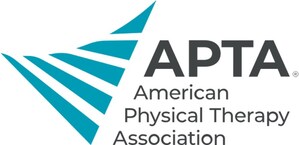Health Care Workforce Challenges and Patient Access to Care Addressed in Bipartisan Legislation
Changing Supervision Requirements for Therapy Services Will Reduce Administrative Burden
and Increase Access to Care in Rural and Underserved Communities, States The American
Physical Therapy Association
ALEXANDRIA, Va., July 26, 2023 /PRNewswire/ -- The American Physical Therapy Association applauds new legislation that addresses the workforce crisis of health care providers while improving patient access to care in rural and underserved communities. Introduced in the U.S. Senate by Sens. Carper, D-Del., and Barrasso, R-Wyo., and in the U.S. House of Representatives by Reps. Lesko, R-Ariz., and Kuster, D-N.H., as the Enabling More of the Physical and Occupational Workforce to Engage in Rehabilitation Act, or the EMPOWER Act (S. 2459) and (H.R. 4878), this bipartisan legislation would bring supervision requirements of physical therapist assistants and occupational therapy assistants under Medicare Part B in private therapist practices in line with state licensure laws, as well as with all other settings where Medicare beneficiaries receive therapy services.
"The American Physical Therapy Association is grateful to Senators Carper and Barrasso, and Representatives Lesko and Kuster for their leadership on this critical piece of legislation to improve patient access to care," said APTA President Roger Herr, PT, MPA. "The EMPOWER Act will help our health care system lower costs, reduce administrative burdens, and provide helpful flexibilities for physical therapists in small businesses. Changing the supervision requirement allows physical therapist assistants to practice at the top of their license, recognizing the valuable role they play in the health care system and providing critical support to therapy clinics."
Standardizing general supervision requirements for private outpatient practices under Medicare Part B would align with 49 states' physical therapy licensure laws that allow for general supervision. The change is cost-effective and would reduce administrative burden while implementing common-sense consistency with state laws and across all other Medicare settings.
According to an independent, nonpartisan study commissioned by a coalition of health care provider groups, the cost savings this legislation will bring are projected to be as much as $271 million.
"As we emerge from a years-long pandemic, our health care workforce is in crisis as it responds to a resurgent opioid crisis, increasing administrative burden, and the need for increased patient access to care," said Justin Elliott, vice president of government affairs for APTA. "It's now more apparent than ever that physical therapist assistants working under PT supervision in private practice play a crucial role in meeting these challenges, and that unnecessary and inconsistent administrative burdens shouldn't stand in the way."
The American Physical Therapy Association represents 100,000 physical therapists, physical therapist assistants, and physical therapy students nationwide. Visit apta.org to learn more.
SOURCE American Physical Therapy Association

WANT YOUR COMPANY'S NEWS FEATURED ON PRNEWSWIRE.COM?
Newsrooms &
Influencers
Digital Media
Outlets
Journalists
Opted In




Share this article